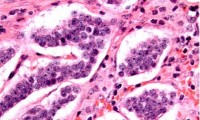-
GSK concludes Aiolos Bio acquisition for $1.4bn
- Source: drugdu
- 483
- February 20, 2024
-
Sanofi’s investigational frexalimab shows promise in relapsing forms of MS
- Source: drugdu
- 470
- February 20, 2024
-
Hengrui’s anti-IL-17A Vunakizumab marketing application for ankylosing spondylitis indications accepted
- Source: drugdu
- 591
- February 20, 2024
-
MHRA launches second phase of genetic biobank for stroke prevention medicines
- Source: drugdu
- 334
- February 20, 2024
-
New Protein Biomarker to Help Develop Blood-Based Tests for Aggressive Neuroendocrine Carcinomas
- Source: drugdu
- 333
- February 19, 2024
-
Study Advances Blood Tests for Psychiatric and Neurological Disorders
- Source: drugdu
- 439
- February 19, 2024
-
FDA grants orphan drug status to Ionis’ olezarsen for FCS treatment
- Source: drugdu
- 286
- February 19, 2024
-
Dragonfly and Gilead enter partnership for cancer therapy
- Source: drugdu
- 509
- February 19, 2024
-
Regeneron and Sanofi’s Dupixent bags fifth drug label in Japan
- Source: drugdu
- 502
- February 19, 2024
-
QBiotics wins FDA orphan status for rainforest-derived cancer drug
- Source: drugdu
- 293
- February 19, 2024
your submission has already been received.
OK
Subscribe
Please enter a valid Email address!
Submit
The most relevant industry news & insight will be sent to you every two weeks.

















